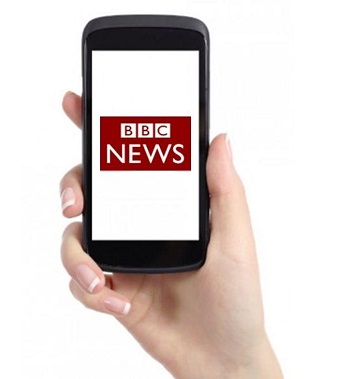This Android based smartphone may very well be the company’s last attempt at this type of device.
The BlackBerry Priv, the latest device from the struggling Canadian company and the first that is based on Google’s Android operating system, has now been on the market for its first weekend and the question has now been raised as to whether or not consumers have responded well and what it will mean for the future of the company.
CEO of the handset maker, John Chen, has suggested that this may be a defining product for the company.
Chen has previously indicated that whether or not the company will continue to make handsets may depend on whether or not the BlackBerry Priv ends up being successful. That said, by the time of the writing of this article, the company had not yet released its numbers with regards to the sales that it experienced during its first launch weekend. This device also represents the first time in years that the company has turned its attention to reaching out to mainstream audiences once again, instead of smaller niche markets.
The most notable difference in the BlackBerry Priv has to do with the Android operating system powering it.
 Until now, the company has always used its own BlackBerry operating system. However, it is hopeful that by changing to the Android OS, it will become considerably more appealing to consumers who value a very large number of mobile app options for their devices.
Until now, the company has always used its own BlackBerry operating system. However, it is hopeful that by changing to the Android OS, it will become considerably more appealing to consumers who value a very large number of mobile app options for their devices.
John Chen has stated that it is vital that the hardware division at BlackBerry become profitable before the close of the current fiscal year, which will occur on February 29, 2016. If that does not happen, it is very likely that the company will choose not to continue to make smartphones and will redirect its attention to focus on its security software development.
Chen’s calculations state that in order to meet its goals to continue in hardware, the company would need to sell five million phones throughout the current fiscal year. That would be the break-even point. Considering that the company has already reached the halfway point in that time and it still needs to sell three million devices to reach that goal, it is clear that the future of that part of the company is highly dependent on the success of the BlackBerry Priv.
The new guidelines include a recommendation for shorter and less formal videos to suit news consumption trends.
BBC journalists have now been instructed that their news videos should be less formal and shorter, in order to better appeal to the shift that the public has been making toward mobile devices when they consume the news.
These new guidelines were created and issued to reporters under the title of “How to Win at Mobile”.
Journalists were instructed to try to keep their videos limited to 60 to 90 seconds in length, as this is considered to be more appealing to people who will be viewing them on social media and mobile devices, said the documents. The guidelines use certain popular sources such as Vice and Buzzfeed, which were both in attendance at a recent conference. The guidelines were meant to provide advice with regards to the ways in which to better reach the millennial generation, who are much less trusting of mainstream media, and who “prize authenticity, immediacy and vibrancy.”
The BBC stated that this strategy was simply to better suit mobile devices and not to try to imitate others.
 According to a spokesperson from the company, “We are committed to providing the trusted news we know audiences value and expect from the BBC, at the same time we must also keep pace with the way people want to access news. This means more public service news via mobile so it can be personal, portable and on-demand.”
According to a spokesperson from the company, “We are committed to providing the trusted news we know audiences value and expect from the BBC, at the same time we must also keep pace with the way people want to access news. This means more public service news via mobile so it can be personal, portable and on-demand.”
These new instructions were created as a component of Project Newstream at the BBC. Project Newstream is a type of initiative designed to ensure that the content produced by the corporation will be more mobile friendly. It was first unveiled in September by its director general, Tony Hall.
Upon first unveiling the strategy, Hall explained that the corporation would be using the next decade in order to “ride two horses – serving those who have adopted the internet and mobile media, while at the same time making sure that those who want to carry on watching and listening to traditional channels continue to be properly served too.”
This change in direction has arrived at the same time that the BBC has been struggling to justify the online news coverage that it has been creating, in face of the criticism that it has been receiving from commercial rivals. Several newspaper industry players who are in direct competition with the new media organizations when it comes to snatching up online advertising spending, have said that the BBC should be scaling back its operations in terms of digital news for PC and mobile devices.
 Until now, the company has always used its own BlackBerry operating system. However, it is hopeful that by changing to the Android OS, it will become considerably more appealing to consumers who value a very large number of mobile app options for their devices.
Until now, the company has always used its own BlackBerry operating system. However, it is hopeful that by changing to the Android OS, it will become considerably more appealing to consumers who value a very large number of mobile app options for their devices.
 According to a spokesperson from the company, “We are committed to providing the trusted news we know audiences value and expect from the BBC, at the same time we must also keep pace with the way people want to access news. This means more public service news via
According to a spokesperson from the company, “We are committed to providing the trusted news we know audiences value and expect from the BBC, at the same time we must also keep pace with the way people want to access news. This means more public service news via 